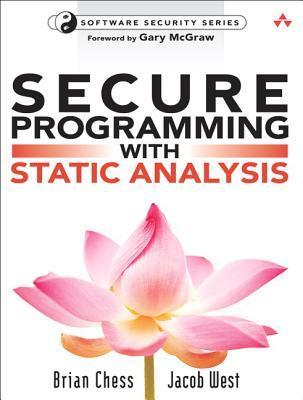The First Expert Guide to Static Analysis for Software Security!
Creating secure code requires more than just good intentions. Programmers need to know that their code will be safe in an almost infinite number of scenarios and configurations. Static source code analysis gives users the ability to review their work with a fine-toothed comb and uncover the kinds of errors that lead directly to security vulnerabilities. Now, there’s a complete guide to static how it works, how to integrate it into the software development processes, and how to make the most of it during security code review. Static analysis experts Brian Chess and Jacob West look at the most common types of security defects that occur today. They illustrate main points using Java and C code examples taken from real-world security incidents, showing how coding errors are exploited, how they could have been prevented, and how static analysis can rapidly uncover similar mistakes. This book is for everyone concerned with building more secure developers, security engineers, analysts, and testers.

